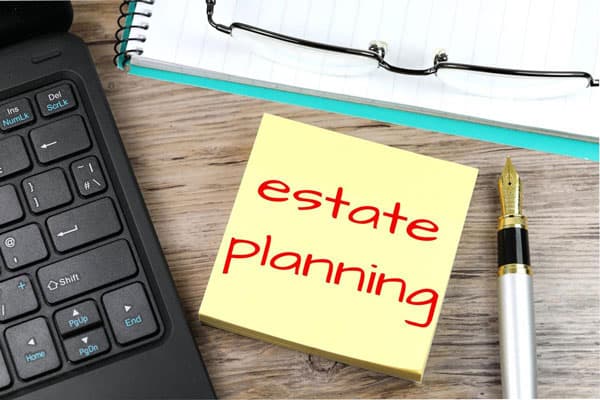Why Everyone Needs an Estate Plan
Table of Contents
Introduction
Ah, estate planning. It might sound like something reserved for the wealthy elite or perhaps a plot point in a soap opera. But in reality, it’s a crucial step for everyone, no matter the size of your bank account.
Remember that time Uncle Bob left his entire fortune to his cat, Whiskers? While Whiskers lived a life of luxury, Uncle Bob’s human relatives weren’t too pleased. Let’s dive into why you should avoid such feline fiascos and get your estate in order.
Why Everyone Needs an Estate Plan:
Embarking on the journey of financial planning? One of the first stops should be understanding why everyone needs an estate plan. It’s not just about the distribution of assets after you’re gone.
It’s a holistic approach to ensuring your wishes, both financial and personal, are honored. In this guide, we’ll debunk common myths, highlight the benefits, and offer a beginner’s roadmap to estate planning.
And, as a little bonus, we’ll touch upon how the digital age, especially with the rise of AI in 2023, has made accessing and sharing this kind of information easier than ever.
The Real Benefits of Estate Planning
Peace of Mind: Imagine lying on a beach, sipping a piña colada, and not having a care in the world about what happens to your assets after you’re gone. That’s the peace of mind estate planning offers. You’ll know your assets will be distributed just as you wish.
Avoiding Probate: Nobody wants their loved ones to get caught up in a lengthy, costly legal process. Proper estate planning helps sidestep the probate process, ensuring a smoother transition of assets.
Minimizing Taxes: Nobody likes giving away their hard-earned money, especially not to taxes. Proper planning can significantly reduce the tax burden on your heirs, ensuring they get more of what you leave behind.
Ensuring Your Wishes Are Followed: Whether it’s healthcare decisions or who gets your prized Elvis Presley mug collection, estate planning ensures your wishes are carried out.
Common Myths Surrounding Estate Planning
“I’m too young for that!” Estate planning isn’t just for those in their golden years. Accidents happen. It’s best to be prepared, no matter your age.
“I don’t have enough assets.” Think estate planning is only for millionaires? Think again. Even if you only have a few assets, it’s essential to dictate where they go.
“It’s too complicated.” Sure, there’s a bit of jargon to wade through. But with the right help (and maybe a glossary), it’s more straightforward than you’d think.
Getting Started with Estate Planning
Gathering Important Documents: Start with the basics. Wills, trusts, and any other pertinent documents should be your first port of call.
Choosing an Executor: This is the person who’ll ensure your wishes are carried out. Pick someone trustworthy, reliable, and preferably not Whiskers.
Reviewing and Updating Regularly: Got a new asset? Had a falling out with a relative? Life changes, and so should your estate plan.
The Power of Digital:
Starting a Blog About Your Estate Planning Journey
In 2023, blogging isn’t just for foodies or travel enthusiasts. Why not document your estate planning journey?
Share your experiences, the lessons you’ve learned, and maybe a few humorous anecdotes (like the Whiskers debacle). With AI tools available today, starting a blog is easier than ever. Plus, it’s a fantastic way to connect with others and even make a bit of money on the side.
Conclusion
Estate planning isn’t just a task for the “one day” list. It’s a crucial step to ensure peace of mind, protect your assets, and guarantee your wishes are followed.
So, take the plunge, seek professional advice, and maybe even start that blog. After all, if Whiskers can become a millionaire, anything’s possible!
Frequently Asked Questions
What’s the role of an executor in estate planning?
An executor is responsible for ensuring that your wishes, as outlined in your will, are carried out. They’ll handle tasks like paying off debts, distributing assets, and more.
I’ve heard about “living wills.” What are they?
A living will, or advance directive, outlines your healthcare wishes should you become incapacitated and unable to make decisions for yourself.
How can I ensure my digital assets (like social media accounts) are handled correctly?
Digital assets can be included in your estate plan. Specify how you want each account managed, whether it’s deletion, memorialization, or passing control to someone else.
Is estate planning expensive?
Costs can vary based on complexity. While DIY options exist, consulting with a professional ensures your plan is comprehensive and legally sound.
How do I start the estate planning process?
Begin by listing all your assets and debts. Then, consider your wishes for distribution, healthcare, and guardianship.
Finally, consult with an estate planning attorney to draft the necessary documents.
With advancements in AI and technology, can I create an estate plan online?
There are online platforms that offer estate planning tools.
However, while they can be a good starting point, it’s always best to consult with a professional to ensure your plan is comprehensive and tailored to your specific needs.
I’ve read about the importance of estate planning on a blog. Is blogging a viable way to share and learn about such topics?
Absolutely! Blogging is a powerful platform to share experiences, advice, and insights.
With the rise of AI in 2023, starting a blog has become even more accessible, making it a great avenue to explore and share knowledge on topics like estate planning.
Is estate planning only for the elderly?
Not at all! It’s for everyone, regardless of age. The earlier you start, the better.
How often should I update my estate plan?
Whenever there’s a significant change in your life, such as a new asset, marriage, or birth of a child.
Can I do it myself or should I hire a professional?
While there are DIY options, it’s always best to consult with a professional to ensure everything is in order.
How does estate planning differ from a will?
A will is a component of estate planning, which is a broader process that includes trusts, healthcare directives, and more.
What happens if I don’t have an estate plan in place?
Your assets will be distributed based on state laws, which might not align with your wishes.








